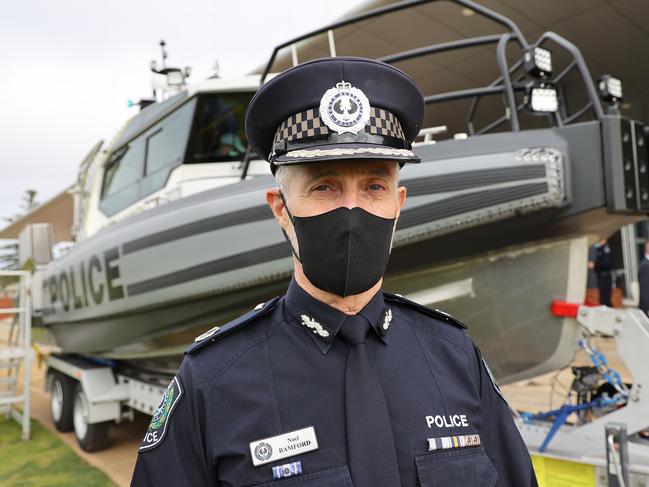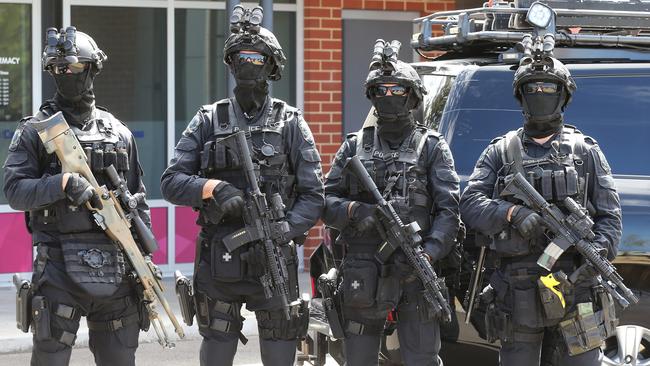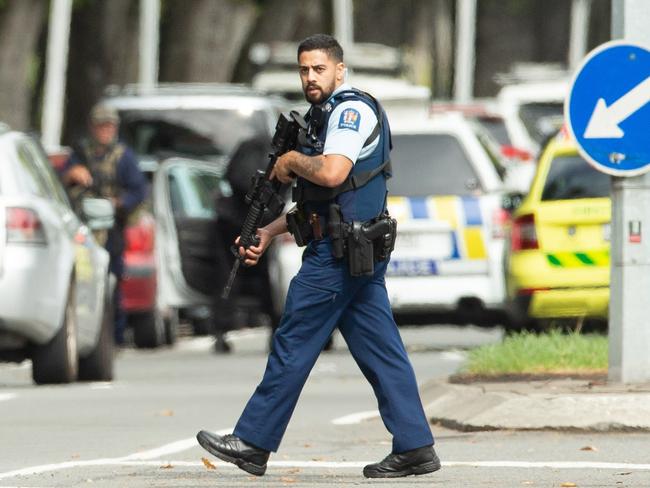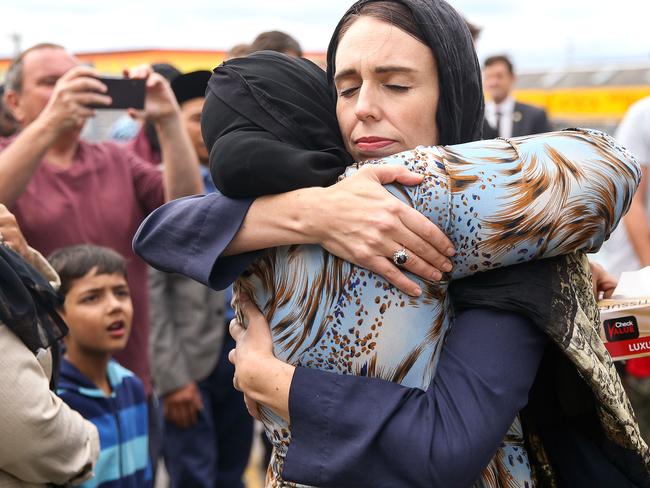SA’s top anti-terrorism police officer says Covid has fuelled a rise in violent neo-Nazi views among middle-class suburban men
Forget the Nazi skinhead cliche. These days violent right-wing extremists are middle-class men radicalised by internet conspiracies, SA’s top terrorism cop has warned.
True Crime
Don't miss out on the headlines from True Crime. Followed categories will be added to My News.
The Covid-19 pandemic has helped fuel a rise in far-right violent views in seemingly normal middle-class men living in the suburbs, the state’s top anti-terror police officer has revealed.
Senior police have revealed for the first time how the profile of neo-Nazi extremists has moved from a skinhead with tattoos to a “reasonably well-educated, middle-class” man aged 25.
New police figures show since that 2019, 17 suspects have been arrested for either religious or ideological terrorism-related offences but data on current investigations is secret.
Assistant Commissioner Noel Bamford told The Advertiser that counter-terrorism detectives were monitoring the National Socialist Network, which had a small but active membership of fewer than 20 people across the state.
It has attracted controversy interstate, where it has a much bigger base of supporters who communicate in secret through a range of encrypted phone applications.
While Mr Bamford said there are no other far-right groups of interest in South Australia, there are several terrorism-related cases currently before the courts.


Mr Bamford, a policeman for 45 years, told how authorities are concerned South Australians are complacent about ongoing terrorism threats, which posed a major risk.
There is no intelligence to suggest any attack is imminent but the national terrorism alert level is at “probable”.
This means agencies such as ASIO have reliable information on people across the country “who have the intent and the capability to commit an attack”.
In a rare interview, Mr Bamford – who, as the force’s state controller, is senior Covid-19 adviser to Police Commissioner Grant Stevens during the pandemic – said there had been a recent rise in far-right extremism.
He said there were more people from the “National Socialist-type movement” who attended protests with the sole purpose of inciting violence.
He said a “preconceived idea of your anarchist” was traditionally a skinhead covered in tattoos who “stood out” in a crowd.
This has now evolved to educated groups of men adopting violent ideology.
The pandemic has also fuelled a spike in “hate mail”, especially to senior dignitaries, Mr Bamford said.
“There’s been a lot of anti-vaccination sentiment, a lot of anti-lockdown sentiment, and that’s translated into this ideological-motivated approach to anti-government,” he said.
“It’s a phenomenon that none of us have seen before.
“But it’s understandable how it can happen. People just get lost in what they’re reading on the internet, don’t have that social interaction and aren’t getting a balanced view of the world.
“They’re chasing ideas down the internet path from one page to another, as opposed to sitting back and looking at a balanced, holistic view of things.”
Mr Bamford, who oversees the State Protective Security Branch, which includes the anti-terror squad, said it was healthy to have debates over different beliefs in a democratic country.
“But when you move into that violent extremism area, that’s the problem,” he said.
“When you’re starting to incite people to commit violence on others, that’s the problem.”

He said police used an “all-hazards approach” that focused on prevention, preparedness, response and recovery.
This ranged from talking to migrant leaders and other community chiefs to intelligence-gathering – the details which he refused to discuss – through to armed officers watching for threats on the ground.
This includes the elite STAR Group and Security Response Section.
Urging the community to report suspicions and families to report changes in young people’s behaviour such as sudden withdrawal, he said the state’s youngest suspected extremist was just 15 years old.
Over the past three years, a joint SA Police and SA Health initiative called the Fixated Threat Assessment Centre has helped people with mental health issues get support rather than “arrest your way out of these situations”.
“I think the biggest threat to SA is that we become complacent and think that nothing will ever happen in this state,” Mr Bamford said.
“And that’s whether that is religious-based terrorism attack, or an ideological-based attack.
“I think that it’s very easy for us, collectively living in South Australia, to think it would never happen here.
“People will be radicalised in SA and may take that radicalisation to a point where they’ll commit an attack on the community.
“When they start adopting the ideology that ‘we’re going to resort to violence to get our way’, that’s when it really becomes an issue for all of us.”

Citing terrorism from Christchurch mosque shooting in New Zealand in 2019 to the US Capitol attack in January last year, he said a “lone-wolf” incident – from those who self-radicalised online – and a cell of terrorists were of equal concern.
“You look at … the simple methodology used to attack people in Melbourne, in Sydney and the likes of Manchester in the UK where after a simple concert, somebody committed a suicide bomb attack,” he said.
“My biggest concern is that we will let our guard down, that we won’t be on the lookout and we won’t have the right strategies in place to ensure that we have a safe environment.
“It’d be very easy for us to go ‘the pandemic is the biggest thing that we’ve ever had and violent terrorism, violent extremism, it’s a thing of the past’ – it’s not.”
More Coverage
Originally published as SA’s top anti-terrorism police officer says Covid has fuelled a rise in violent neo-Nazi views among middle-class suburban men





